Japanese squat toilet plastic model kit: Weird, gross, or both?【Photos】
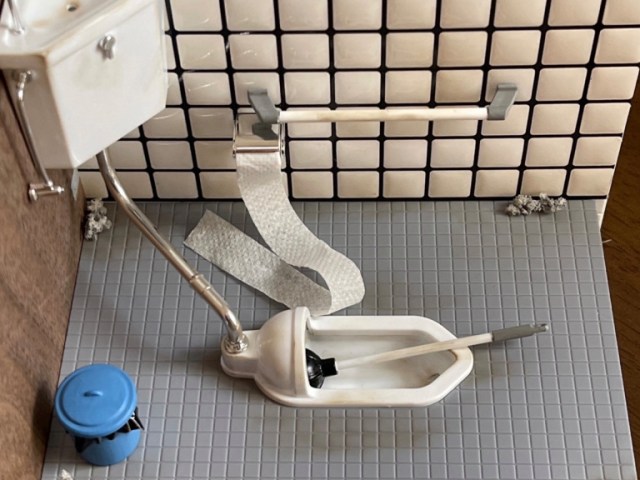
That ain’t just nostalgia our toilet is stained with.
When you think of plastic models from Japan, odds are your first mental image is of a giant anime robot, or maybe you’re a sophisticated and knowledgeable individual (a safe guess, since you’re reading SoraNews24) and so you’re aware of such innovative kits as the Cup Noodle model or the 366-piece sushi one.
But today we’re delving into an especially strange part of the plastic model world by building a Japanese toilet.
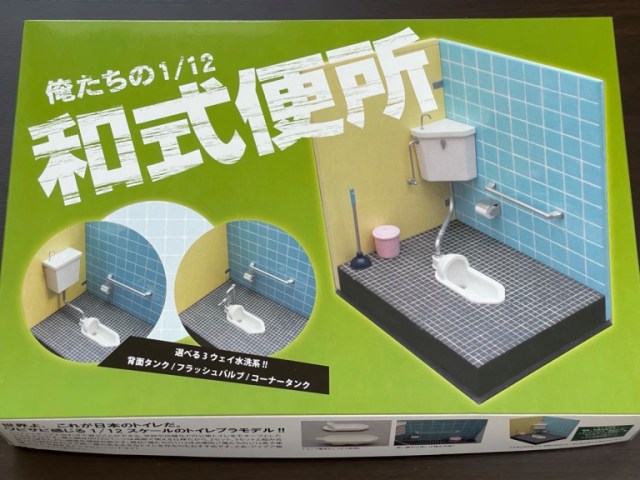
To clarify, we’re not building one of those fancy, hi-tech toilets that squirt out a stream of warm water to wash your backside for you. Those are called “washlets,” but what we’re working with is a washiki benjo, a.k.a. an old-school squat toilet, with manufacturer Milestone’s “Our 1/12-scale Japanese-style Toilet” kit.
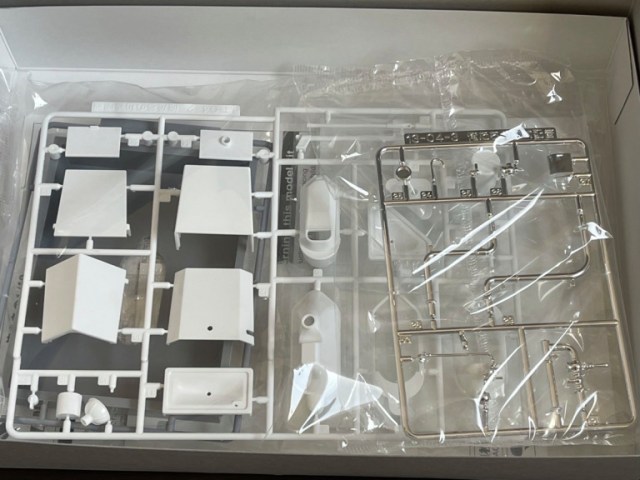
The inclusion of a specific scale makes it easy to use the completed restroom as a backdrop for displaying anime character figurines, but we’re focusing on the kit itself. While painting is recommended, it’s not an absolute must, since the white plastic pieces look reasonably enough like the color of bathroom fixture porcelain, and the pieces for the various bits that would be metallic on a real toilet are a convincing silver.
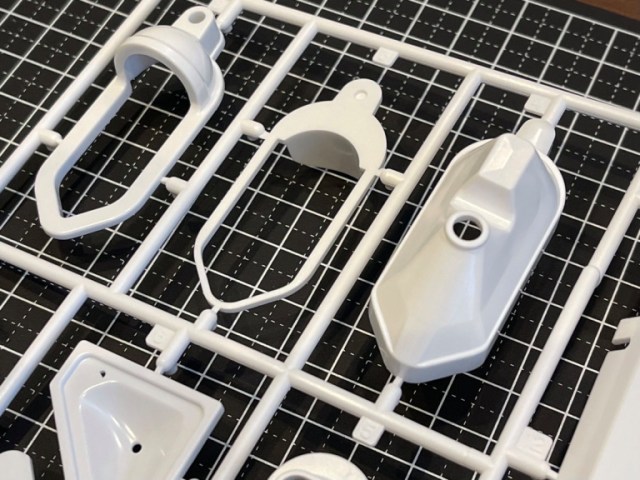
Oftentimes, finishing a model but having pieces left over means you made a mistake somewhere, but it’s not a cause for concern with the Our 1/12-scale Japanese-style Toilet. There are three different styles you can pick between when building (flat-wall water tank, corner-wall water tank, and no exposed tank), and since the kit includes pieces for all three types, you won’t be using them all at any single time.
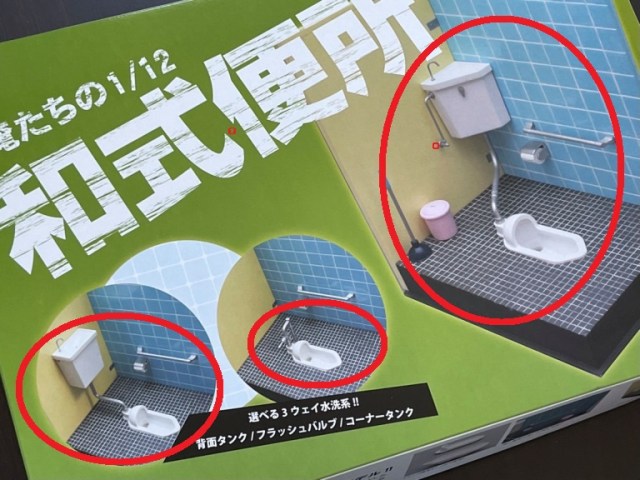
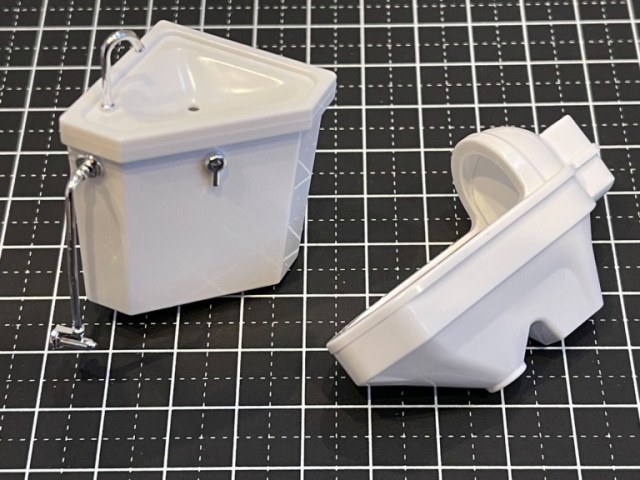
Something that’s really impressive is that the designers didn’t just focus on the externally visible parts. Lift off the cover for a water tank, for example, and you’ll see that even some of the internal bits have been molded.
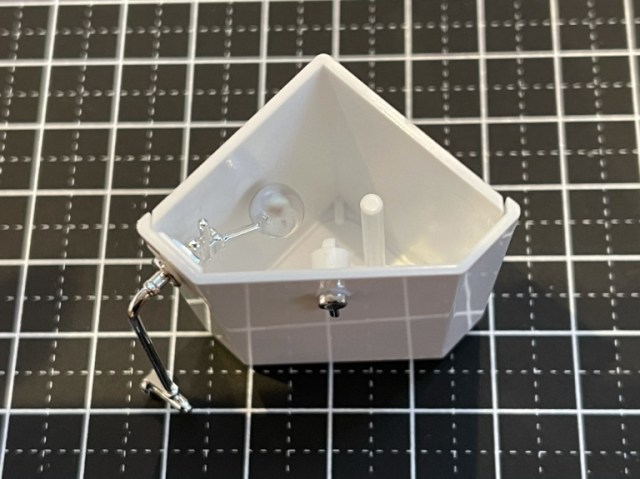
You also get some important accessories, like a roll of toilet paper, plunger, and trash can (shown here after we applied some paint and magic marker coloring).
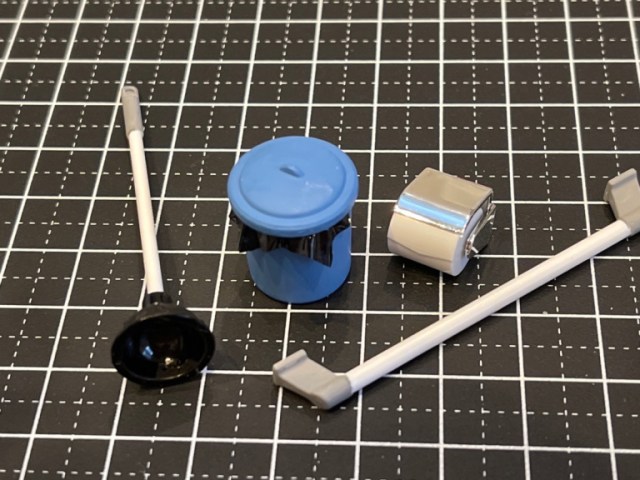
The 1,980-yen (US$19) kit does require some gluing, but it didn’t take us long to put everything together. However, while the toilet is convincingly realistic, the pure-white walls looked a little unnatural.
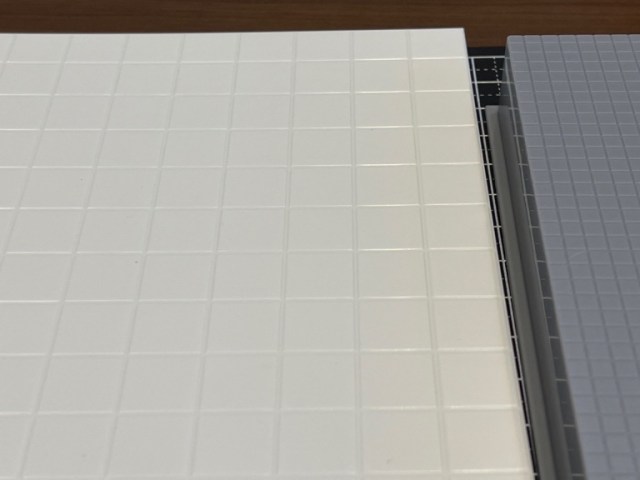
They were just a little too pristine and plasticky. So to counter this, we swung by 100 yen shop Seria, which has a great craft corner, and some imitation tile sticker sheets.
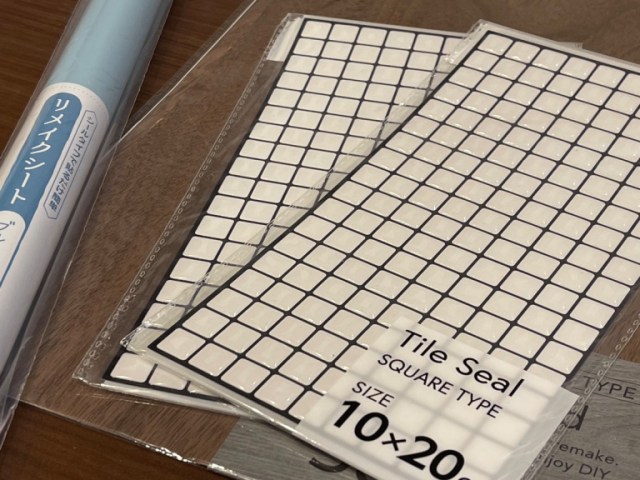
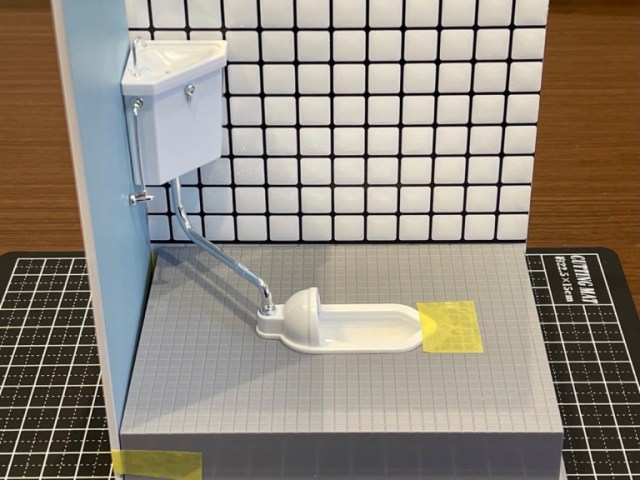
Then, for even more immersion, we hit up the hobby shop and picked up some of Tamiya’s Weathering Master pigment.
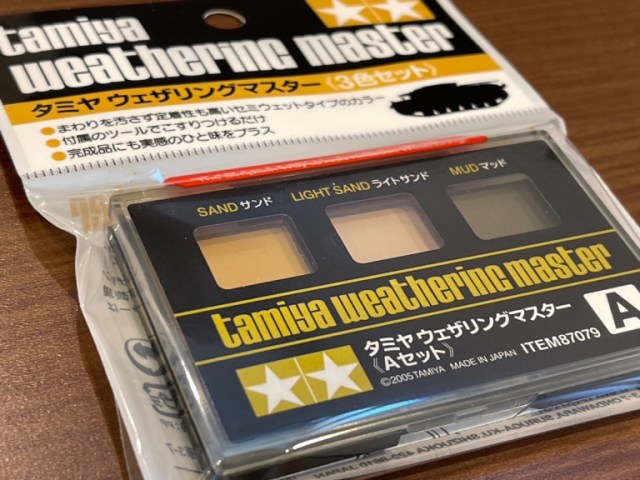
The pigment comes in an eye shadow-like tray, and ostensibly is for adding the effect of sand or mud on machinery. However, you can also blend the colors together to get the thin layer of grime you’ll see in an old, water-stained bathroom.
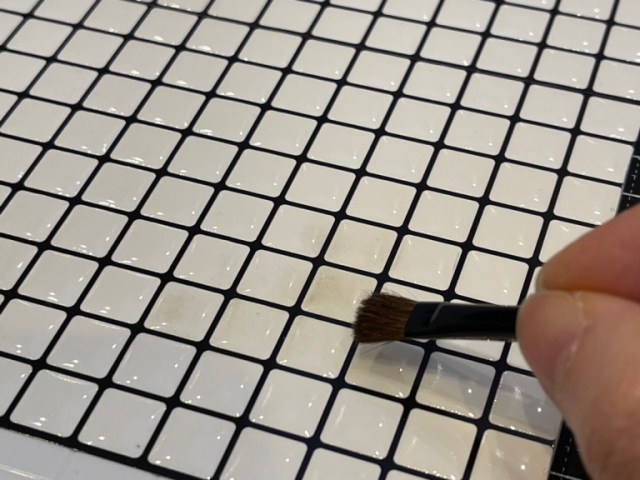
Squat toilets are becoming less and less common in Japan, and a lot of the ones in service are legacy toilets in less affluent schools, train stations, or parks and other public facilities.
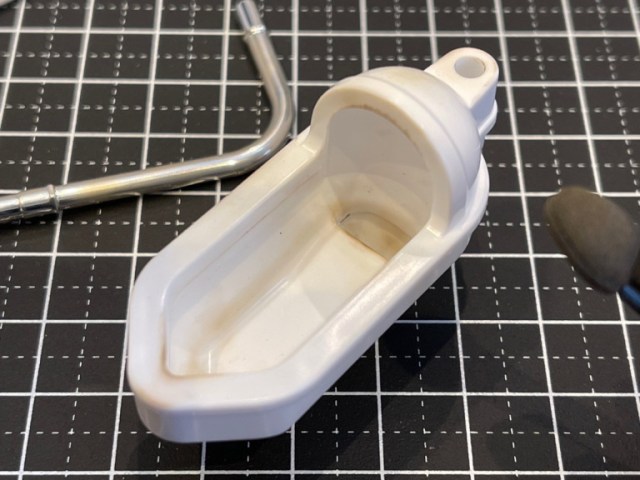
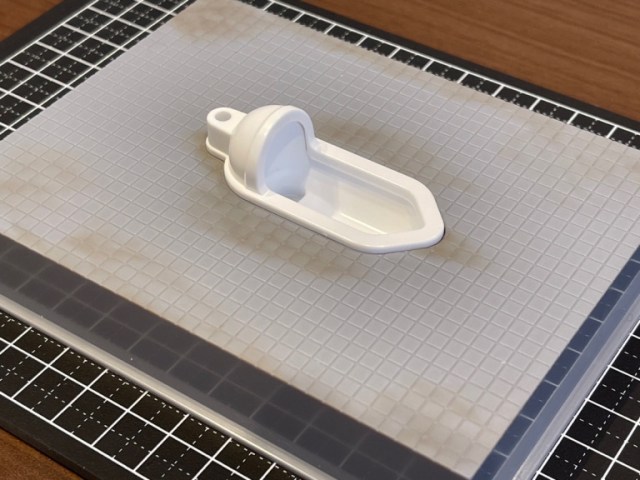
So when you see one, there’s a good chance it won’t be spotless and shining. It may have been a while since it was even scrubbed.
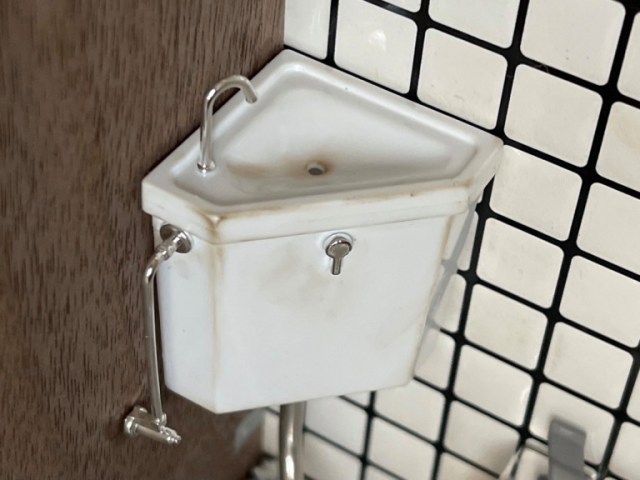
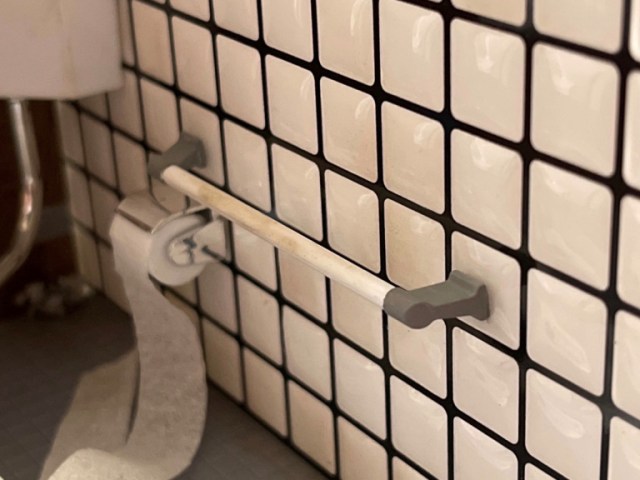
For the finishing touches, we also left some debris on the floor, plus unspooled the toilet paper enough so that you’d definitely want to throw away the tip before wiping yourself with it.
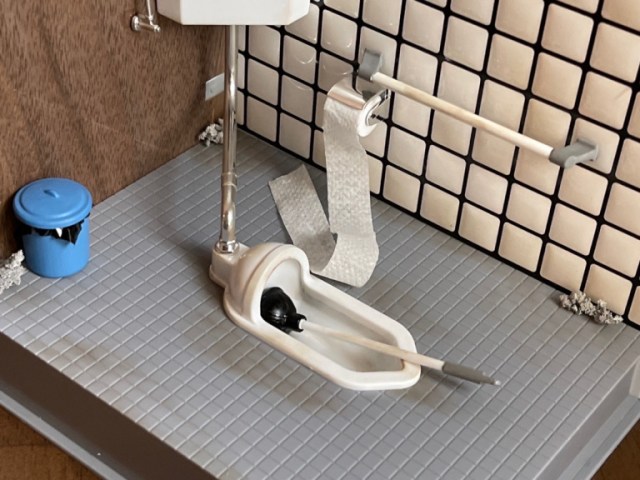
Ah, that’s the dank, it’ll-have-to-do-in-a-pinch washiki benjo of our memories.
Of course, if you’d like a less disgusting nostalgia trip, there’s always the plastic PlayStation model instead.
Photos ©SoraNews24
● Want to hear about SoraNews24’s latest articles as soon as they’re published? Follow us on Facebook and Twitter!
Credit:

0 comments:
Post a Comment